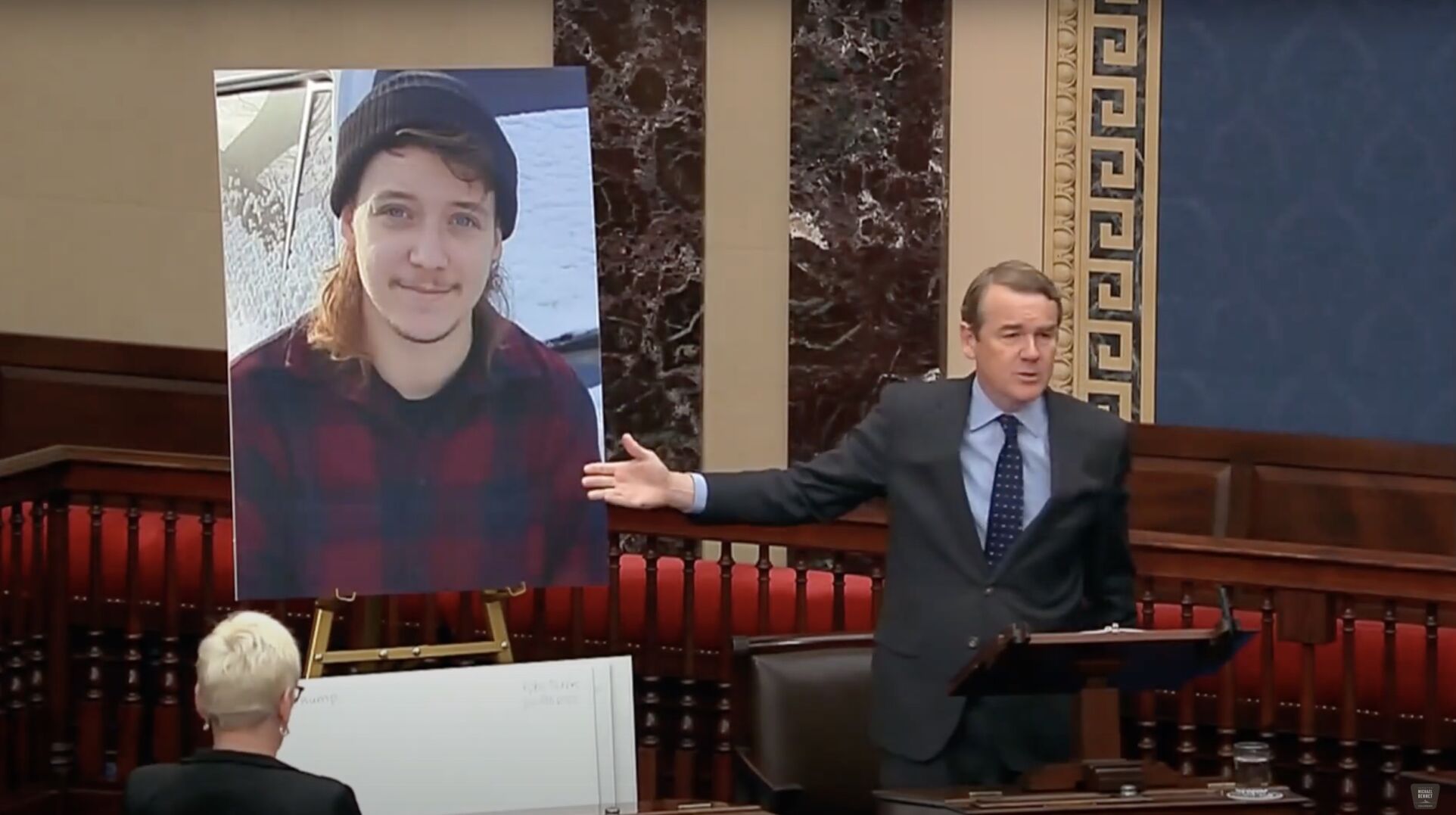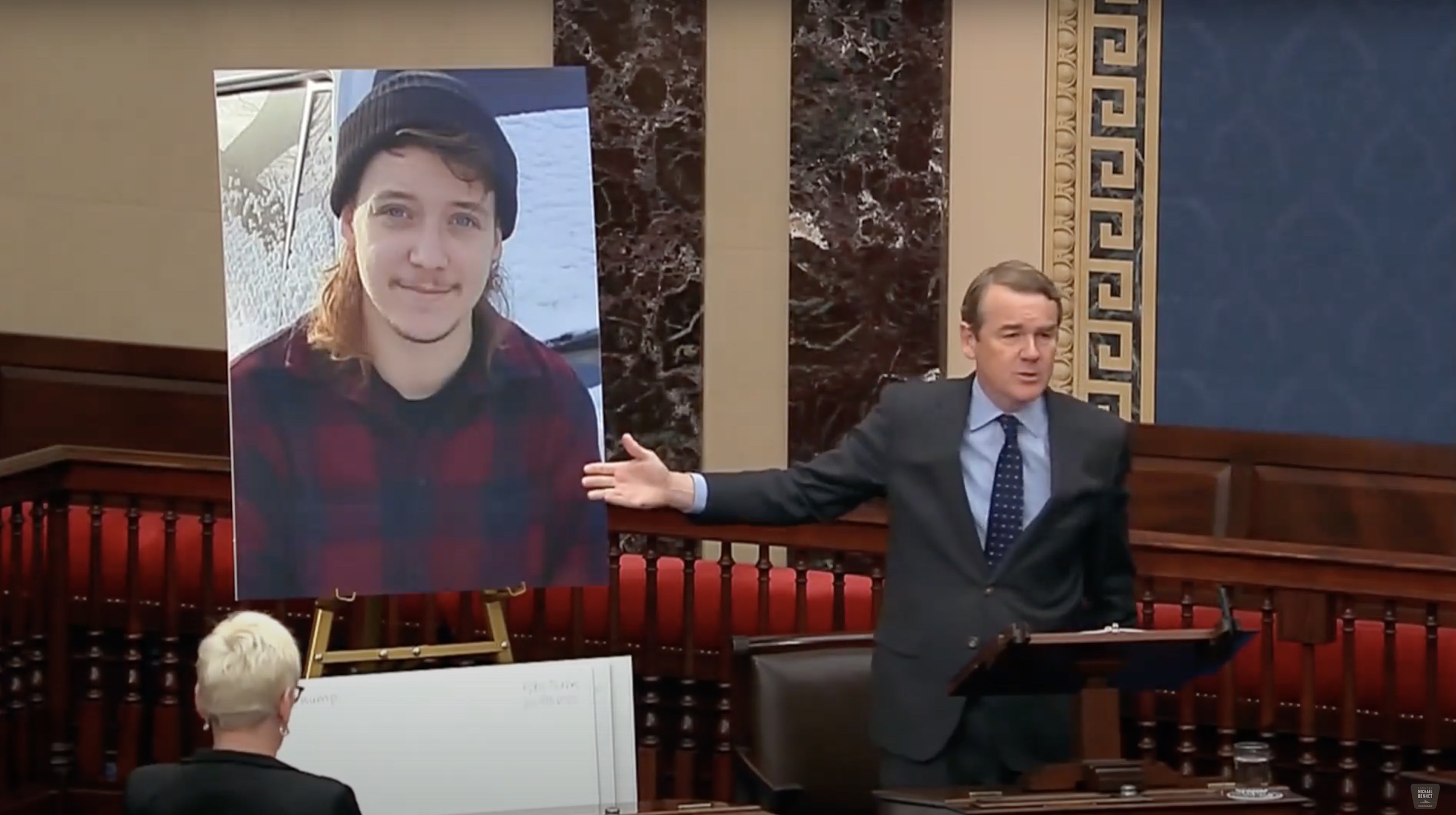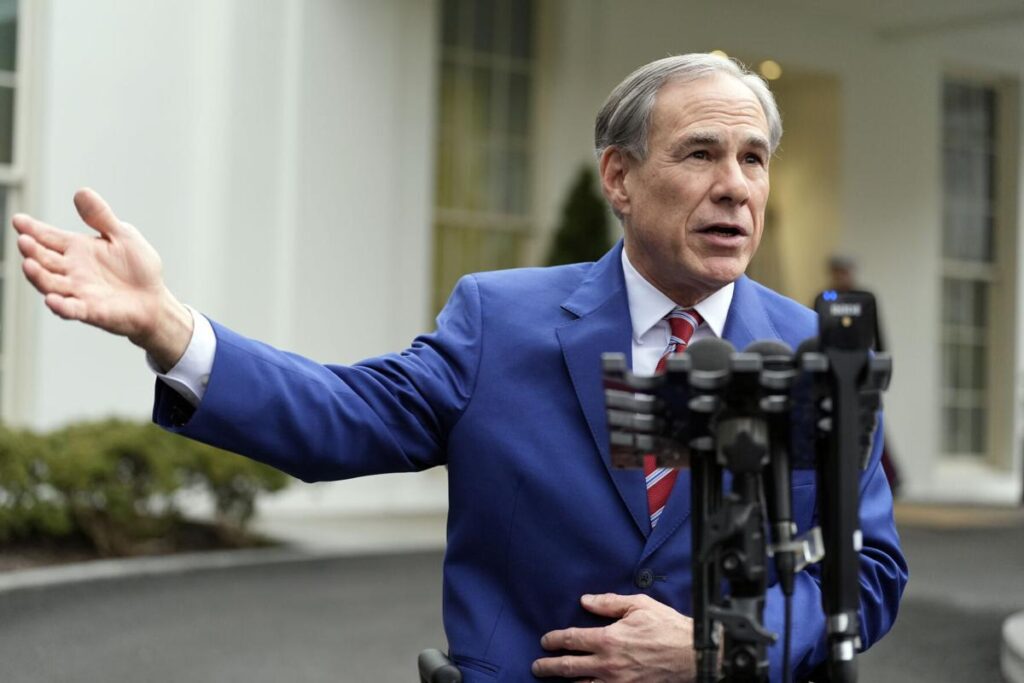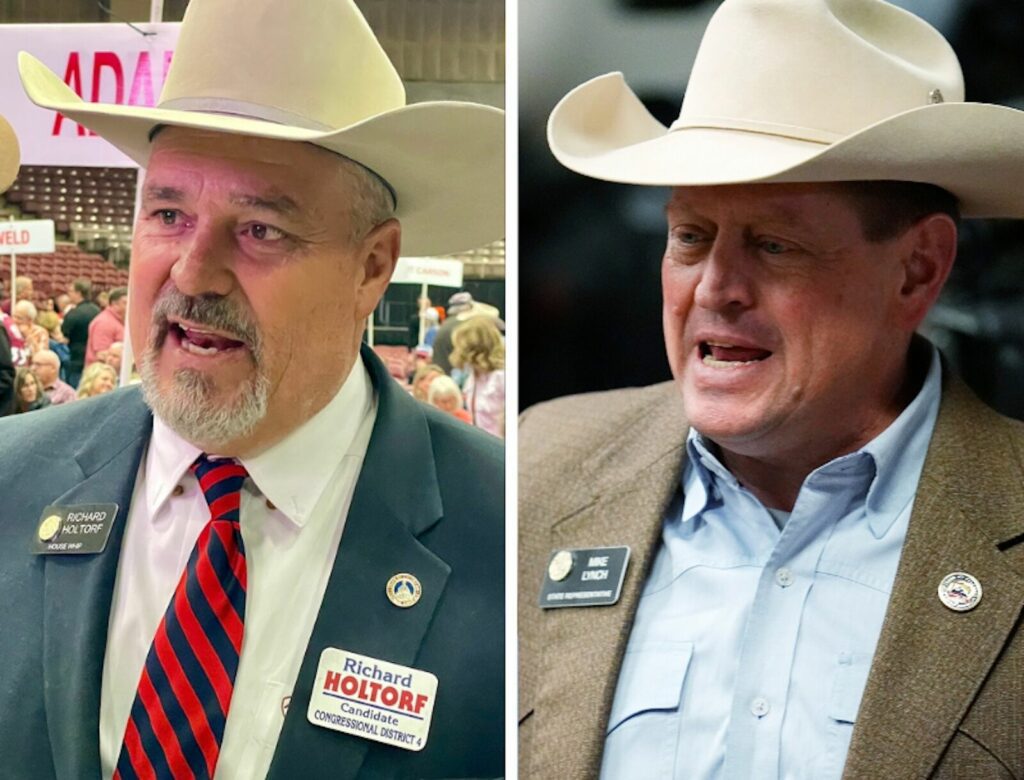WATCH: Bennet honors Club Q shooting victims, calls for passage of same-sex marriage protections

U.S. Sen. Michael Bennet on Tuesday called on the Senate to approve legislation to protect same-sex marriage in an impassioned speech on the chamber floor that honored victims and survivors of a mass shooting on Nov. 19 at an LGBTQI+ nightclub in Colorado Springs.
“Colorado is hurting. We are tired of this,” the Colorado Democrat said after displaying large photographs of the five victims killed in the shooting.
“For more than two decades, we have had to grieve over one incident after another. So, while we stand here on the verge of taking a historic step toward equality, a vitally important step toward equality, we are reminded once again of just how much work is left to do to give our children the safe and accepting future that they deserve, that they want to have, that we are obligated to give them.”
Hours after Bennet’s speech, the Senate passed the Respect for Marriage Act on a bipartisan 61 to 36 vote, which enshrines protections for same-sex and interracial marriage in federal law. The bill, which was supported by every Democrat and 11 Republicans, returns to the House, where an earlier version passed this summer with support from 47 GOP lawmakers.
The bill establishes federal recognition of same-sex and interracial marriages and repeals the Defense of Marriage Act, which defined marriage as between a man and a woman. Colorado’s junior senator, Democrat John Hickenlooper, voted for the bill’s passage.
Sen. Michael Bennet gives a speech honoring the victims of the Club Q attack on the Senate Floor
Senator Michael Bennet
In a 13-minute speech, Bennet said he’d originally planned to speak in support of the legislation by describing how Colorado has “led the way on equality,” including recognizing civil unions in 2013, banning conversion therapy and passing a state version of the bill.
“There may be no right closer to the heart than marrying the one that you love,” Bennet said. “Colorado understands that.”
In the last week, however, Bennet said he’s “been reminded again just how far we have to go.”
Recounting details of the shooting at Club Q, which killed five and injured more than a dozen others, Bennet quoted one of the club’s owners, Nic Grzecka, who called the club “a safe place for people to come and feel and understand that they are normal – that the way they feel is normal and there are people just like them.”
The 22-year-old suspect in the massacre faces 10 arrest-only charges – five counts of first-degree murder and five counts of bias-motivated crimes causing bodily injury – and is being held without bond. The motions filed by the defense addressed the suspect as “Mx. Aldrich,” which is the title given to individuals who identify as non-binary.
The suspect, Bennet said, was “radicalized by hateful and divisive rhetoric” and “forever changed a community, forever changed my state.”
Bennet then displayed large photographs and offered remembrances of each of the five victims he said “were there just being themselves – not bothering anybody.”
Those killed were Derrick Rump, a 38-year-old bartender and co-owner of the club; Daniel Davis Aston, a 28-year-old bar supervisor; Kelly Loving, 40, who recently moved to Colorado and was visiting the city; Ashley Paugh, 35, a mother and nonprofit worker; and, Raymond Green Vance, 22, who grew up in Colorado Springs.
“It fills me with rage that it happened,” Bennet said. “It fills me with sadness. It should fill the entire Senate with rage and sadness.”
Bennet also recognized two patrons at the club who subdued the suspect: Thomas James, a Navy petty officer second class, and Richard Fierro, a combat veteran.
No one, Bennet added, should have to go “into combat mode” to protect friends and family while enjoying a night out, as Fierro said he instinctively did once the gunfire started.
The reason the U.S. Senate was on the verge of passing the Respect for Marriage Act, Bennet said, “is that Americans understand that no good comes from hoarding freedoms and equality.”
“Free people do not remain free by denying freedom to others,” he said. “And today, the Senate of the United States stands on the precipice of advancing freedom, of advancing equality, of moving us closer to our highest ideals. But tomorrow, we have more work to do to live up to the words of our Constitution and realize the promise of equality for all our citizens.”














